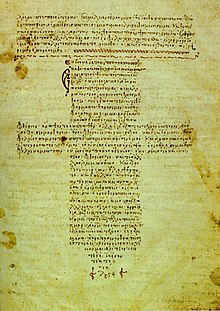The Hippocratic Oath is usually spoken of as referring to the highest principles of morality and ethics that should guide any physician. We decided to check whether modern doctors really bring it.
Many Media, describing recent graduations from higher medical schools, wrotethat yesterday's students took the Hippocratic oath. You can refer to the oath meet and in comments users about what, in their understanding, does not correspond to a high rank. The doctors themselves they tellthat this same oath remains very popular argument in disputes between patients and medical staff.
Various medical oaths existed before Hippocrates. The Hippocratic Oath, according to legend, was transmitted orally from teacher to student since the time of Asclepius (the mythical ancestor of Hippocrates) and only in the 3rd century BC. e. was in writing fixed. The original oath contains the basic moral and ethical principles of the doctor:
- commitments to teachers, colleagues and students;
- the principle of non-harm;
- obligations to provide assistance to the patient (principle of mercy);
- the principle of concern for the benefit of the patient and the dominant interests of the patient;
- the principle of respect for life and a negative attitude towards euthanasia;
- the principle of respect for life and a negative attitude towards abortion;
- obligation to refrain from intimate relationships with patients;
- a commitment to personal improvement;
- medical confidentiality (principle of confidentiality).

manuscript:Unknown authorUnknown authorscan used in book: Foto de la Biblioteca Vaticanascan from book: User:Rmrfstar, Public domain, via Wikimedia Commons
Since then, the text of the oath has changed several times. In Christian Europe, the introductory part “I swear by Apollo the physician, Asclepius, Hygieia and Panacea, all the gods and goddesses, taking them as witnesses” replaced to the wording “Blessed be God, the Father of our Lord Jesus Christ, who is blessed forever and ever; I'm not lying." In Judaism arrived in a similar way, removing the mention of ancient Greek gods and goddesses. IN most modern oaths do not refer either to the original ancient deities or to any others.
One of the most significant revisions to the original oath can be name Declaration of Geneva of the World Medical Association, adopted in 1948. It sets out the most important professional principles: medical confidentiality, medical ethics, actions for the benefit of the patient and equality of patients, regardless of their “gender or age, illness or disability, religion, nationality, race, politics, sexual orientation or social status.”
In the modern world, the oath has undergone significant semantic changes. In all variations from it removed the doctor’s promise not to “use a section,” that is, not to surgically treat urinary and cholelithiasis, a promise to treat patients equally regardless of whether they are a slave or a free person, as well as a clause on the free education of their mentor’s children, since all this is fundamentally contrary to modern ideas and way of life. In addition, in many variations of the oath there is no clause stating that the doctor will not facilitate euthanasia, will not perform an abortion, and will not enter into intimate relations with his patients. In the Russian version, there is a clause about the inadmissibility of euthanasia stayed.
The first documented medical oath in Russian became oath of doctor of the Soviet Union, approved in 1971. In 1994, it was replaced by the oath of a Russian doctor, in 1999 it was accepted updated text - “Oath of the Doctor of Russia”, and in 2011 it came in part of the law “On the fundamentals of protecting the health of citizens in the Russian Federation”. The oath does not have direct legal force, since it contains many abstract concepts (for example, “to maintain gratitude and respect for your teachers, to be demanding and fair to your students, to promote their professional growth”), but some of the provisions of the oath are recorded in other articles of the federal law “On the fundamentals of protecting the health of citizens in the Russian Federation.”
Thus, the wording “Hippocratic oath” now has a more general and metaphorical meaning than refers to a real oath after receiving higher medical education with corresponding obligations. At the same time, the general moral and ethical principles set out in it, adjusted for modern realities, are still relevant, which is reflected in various national versions of the text of the solemn oath.

Mostly not true
Read on the topic:
- Juana Jacques. "Hippocrates"
- Mikhail Shifrin. “100 stories from the history of medicine. The greatest discoveries, exploits and crimes in the name of your health and longevity"
If you find a spelling or grammatical error, please let us know by highlighting the error text and clicking Ctrl+Enter.






